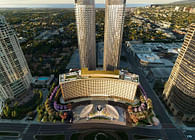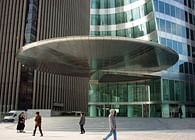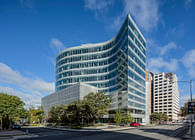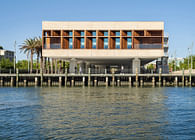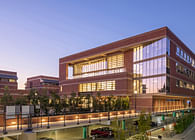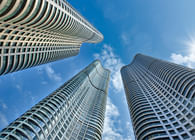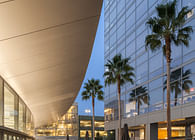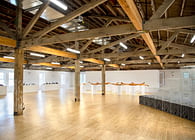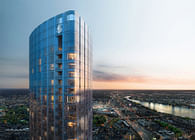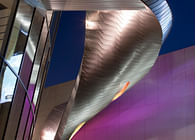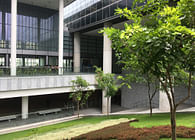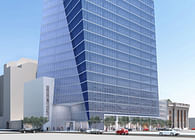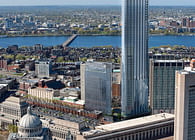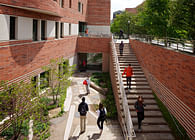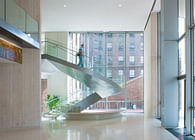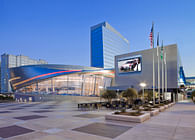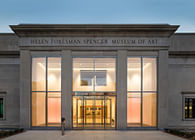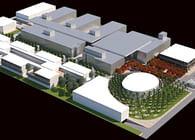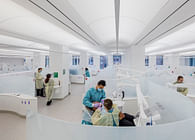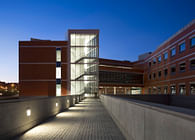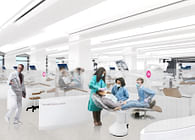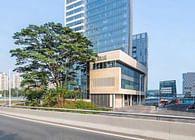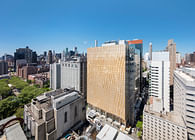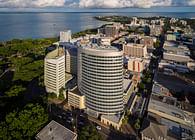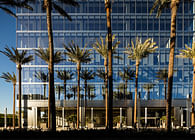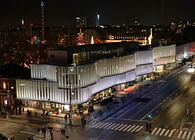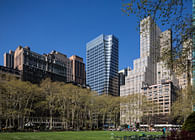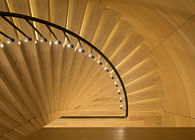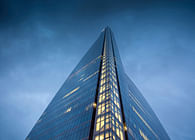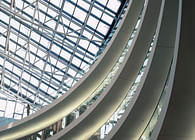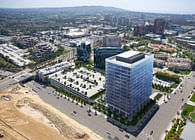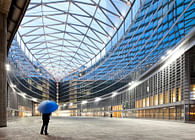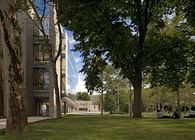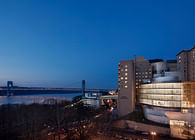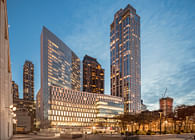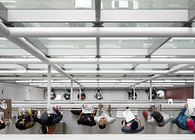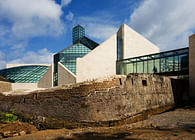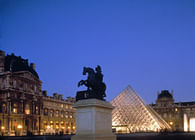
In the tradition of the nearby Thomas Jefferson–designed Virginia State Capitol, the new VCU School of Medicine gives architectural voice to its societal purpose and provides inventive accommodation for the medical school community.
Occupying a site within the dense, urban MCV Campus in the heart of downtown Richmond, the project called for a strategy that would open the building to its context while defining the building mass with a number of discrete, well-scaled components. An inviting and efficient diagonal pedestrian circulation path through the building resolves a disjuncture between the symbolic center of the campus to the east and its functional center to the west.
The sequence of spaces from the entrance on 12th Street includes the covered portico, a double-height lobby, and a diagonal ramp that serves as a stepped forum space. The second floor accommodates a bridge to Main Hospital, a 250-seat auditorium, and an overlook to the main lobby. The elevator bank, placed to allow large flexible floor plates, accommodates a variety of uses, from a 300-seat auditorium to teaching studios, simulation labs, and dry labs on the upper floors. Faculty offices, administrative offices, and meeting rooms are consolidated in perimeter zones.
Designed for LEED Silver certification, the project includes climate walls with computer-controlled electronic sunshades, internal sunshades, and plentiful natural light.
Status: Built
Location: Richmond, Virginia
Firm Role: Architect
Additional Credits: Associate Architect: Ballinger, Philadelphia; Structural / Mechanical / Electrical: Ballinger, Philadelphia; Landscape: Higgins & Gerstenmaier, PLC, Richmond, Virginia; Images: Maxwell Mackenzie, Pei Cobb Freed & Partners
